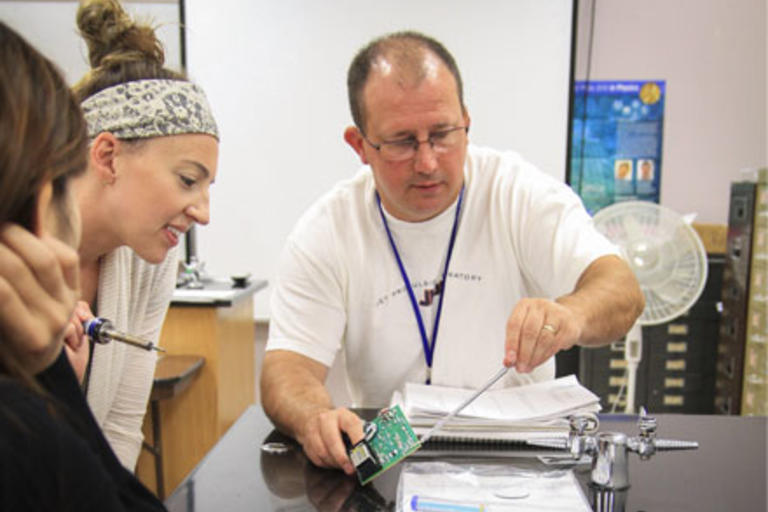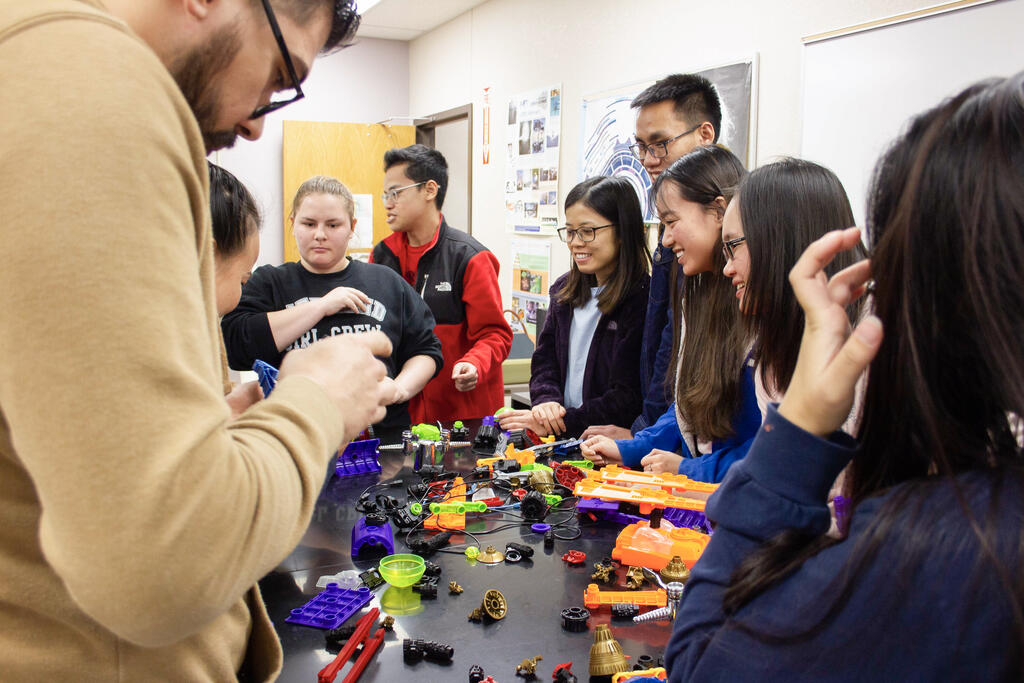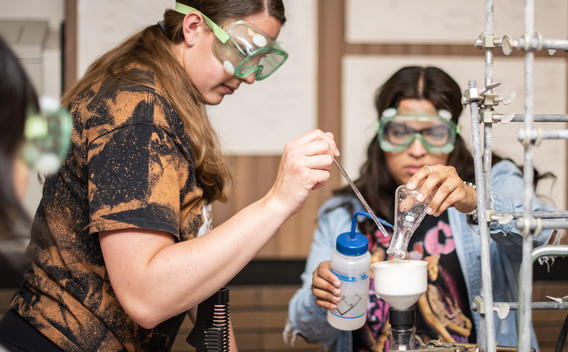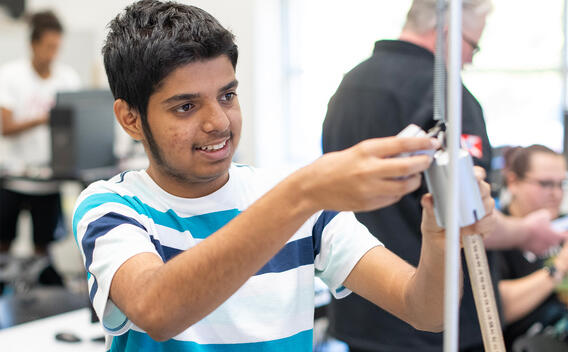
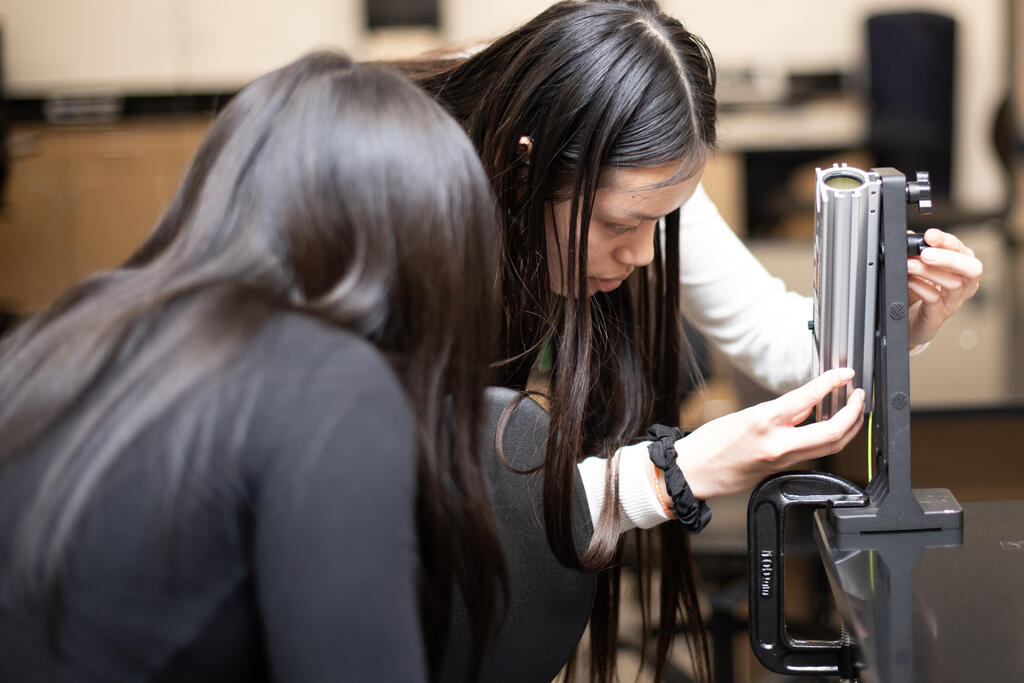
Physics
Whether you want to be an engineer or work in healthcare, understanding physics is fundamental. Learn how the natural world works and how physics shapes your every day. Experiment with theoretical and experiential perspectives, taught by faculty who care about students as much as science.
It’s Not Rocket Science. Well, Some of It Is.
From mechanics and thermodynamics, to electricity and magnetism, physics gives you a deep understanding of the physical world. Whether you're designing a bridge, developing renewable energy systems or creating advanced electronic devices, physics is key for engineers.
A solid grasp of physics will help you think critically, model systems accurately and apply mathematical tools to innovate and build effectively. Without a strong foundation in physics, it would be difficult to navigate the challenges engineers face academically and professionally.
Physics in Medicine and Technology
Interested in health science as a career? Physics is rooted in the fundamental principles that govern our bodies and the technologies used in medical care. Physics concepts like force, motion, energy, pressure and electricity are tied to our biomechanics, cardiovascular function and other parts of our bodies.
Medical imaging techniques also rely on physics to work, such as X-rays, MRIs and ultrasounds. When you need to interpret data, understand physiological processes and apply evidence to assessments, physics is vital.
What You Can Do with a Physics Degree
No matter what your dream job is, our instructors will give you the building blocks to earn your bachelor’s degree at a four-year university or start your career right away in positions like:
-
Lab assistant
-
Engineering assistant
-
Astronomy assistant
Classes You'll Take
These are some examples of courses in our Physics program.
- College Chemistry 1 & 2
- Calculus 1, 2 & 3
- Physics 1 & 2
- Differential Equations
- Navigating Challenges in College Math and Science Pathways
Select Physics courses qualify for our Open Education Resources (OER), where we provide some or all required course materials, saving you money.
Physics (Associate of Science)
NASA at Butler
Want to learn from an instructor who’s studied with NASA? Professor Danny Mattern is your guy. Mattern brought back a host of educational materials from his time at the NASA SETI Institute including LED light filters, electromagnetic wave tests and a camera attachment that displays light waves through a cell phone.
